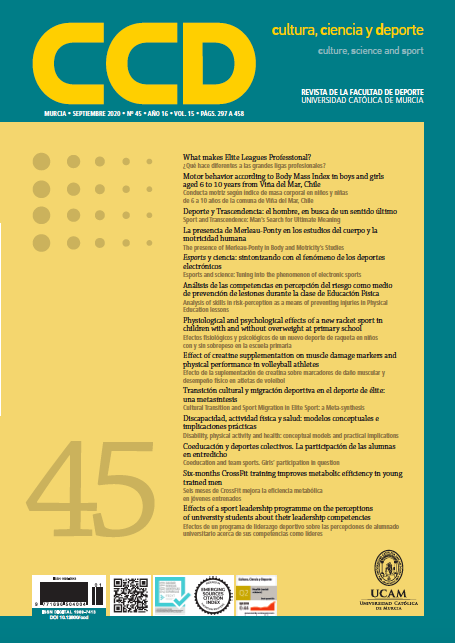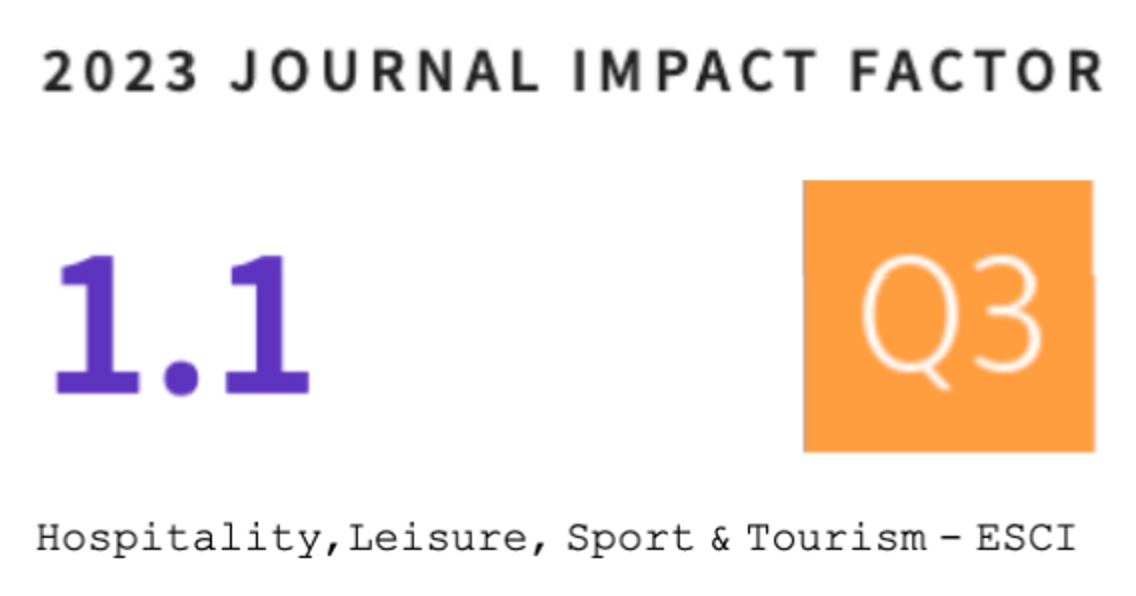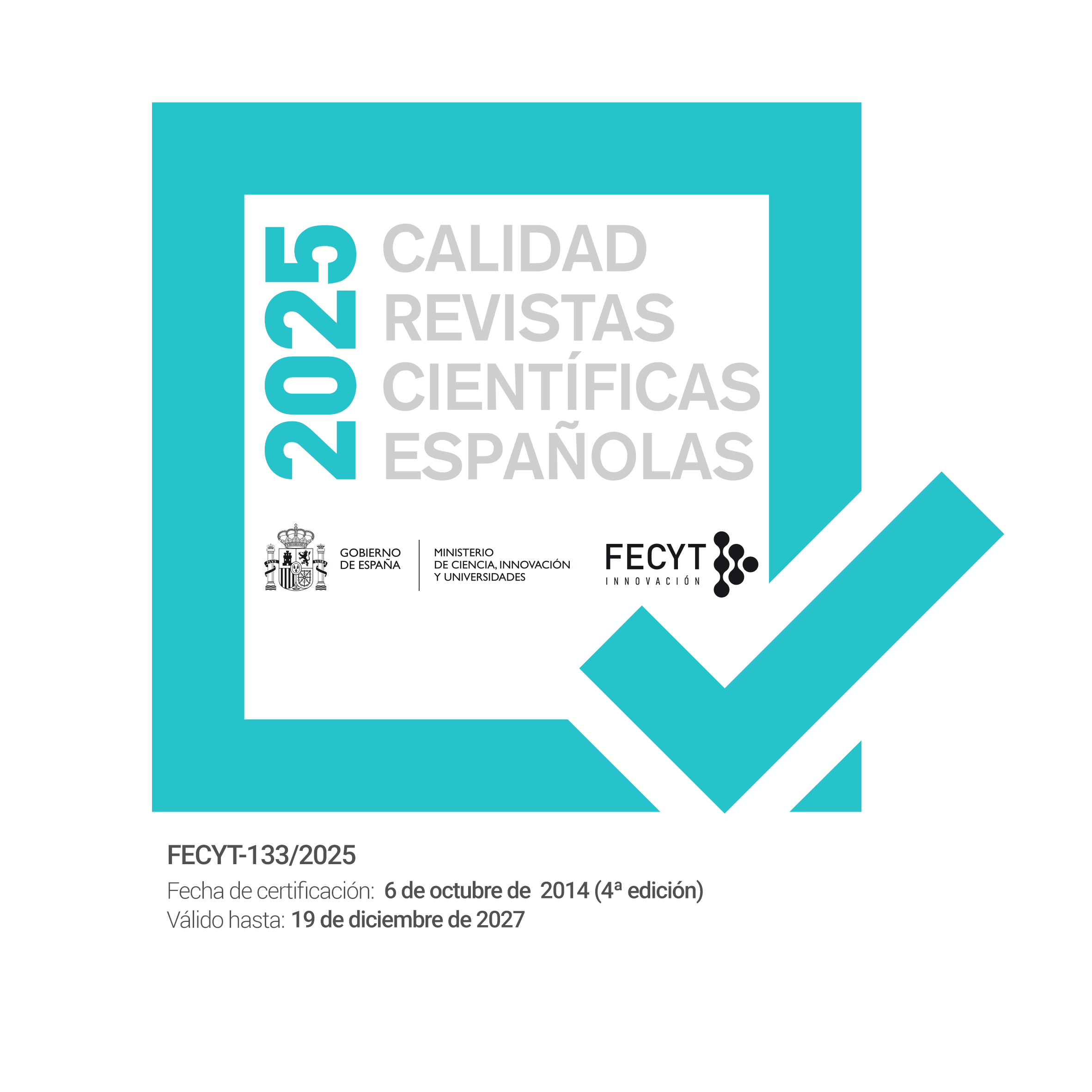Transición cultural y migración deportiva en el deporte de élite: una metasíntesis (Cultural Transition and Sport Migration in Elite Sport: a Meta-synthesis)
DOI:
https://doi.org/10.12800/ccd.v15i45.1516Palabras clave:
Transición cultural, deportistas migrantes, deportistas transnacionales, carrera deportiva, metasíntesis (Cultural transition, migrant athletes, transnational athletes, sport career, Meta-synthesis)Resumen
El objetivo de este estudio es identificar y sintetizar los factores facilitadores de la transición cultural en deportistas migrantes mediante una metasíntesis. Una metasíntesis es un análisis secundario de la evidencia cualitativa primaria realizada para revelar nuevos conocimientos sobre un fenómeno específico, en este caso la transición cultural. Se desarrolló una revisión sistemática y un análisis temático de los artículos identificados. La búsqueda sistemática se realizó en las bases de datos SCOPUS, Web of Science, PsycINFO, SPORTDiscus, Scielo y Redalyc. Se seleccionaron un total de 18 estudios escritos en inglés (n = 16) y portugués (n = 2). El análisis temático deductivo permitió identificar los factores facilitadores de esta transición clasificados en dos categorías: recursos externos y recursos internos. Los recursos externos refieren al (a) contexto sociocultural inclusivo y (b) las redes de apoyo social. De manera complementaria, los recursos internos hacen referencia a (c) la identidad de migrante, (d) el idioma, y (e) las competencias para la gestión de la carrera deportiva en el extranjero. Estos resultados resaltan el carácter recíproco de esta transición caracterizado por la mutua influencia entre el contexto sociocultural y el deportista migrante. Puesto que la mayoría de las investigaciones fueron desarrolladas desde países receptores (n = 16) y con participantes hombres (n = 16), futuras investigaciones con mujeres deportistas migrantes y la exploración de la perspectiva de los países emisores son requeridas. Se proponen recomendaciones prácticas para generar estrategias de acompañamiento basadas en la praxis cultural de la Psicología Cultural aplicada al Deporte.
===
The aim of the present study is to identify and synthesize the facilitators of the cultural transition of migrant athletes using a meta-synthesis. A meta-synthesis is a secondary
analysis of primary qualitative research to reveal new knowledge concerning a specific phenomenon, the cultural transition in this case. A systematic research was performed in the databases SCOPUS, Web of Science, PsycINFO, SPORTDiscus, Scielo and Redalyc. The review included a total of 18 studies written in English (n =16) or Portuguese (n = 2). Five themes, that involve the facilitating factors was identified from the deductive thematic analysis synthetized in two categories: external and internal resources. External resources comprise (a) inclusive sociocultural context and (b) social support networks. Moreover, the internal resources include (c) migrant identity, (d) language, and (e) sport career abroad competencies. These results highlight the reciprocal nature of this transition characterized by the mutual influence between the sociocultural context and the immigrant athlete. Considering that most of these studies were conducted in the receiving countries (n =16) and with samples of male participants (n = 16), future research conducted with female migrant athletes and from the perspective of the sending countries are required. Finally, practical recommendations to generate support strategies based on the cultural praxis of Cultural Sports Psychology are suggested.
Citas
Agergaard, S. (2008). Elite athletes as migrants in Danish women’s handball. International Review for the Sociology of Sport, 43(1), 5–19. doi:10.1177/1012690208093471
Agergaard S., & Ryba T. V. (2014). Migration and career transitions in professional sports: transnational athletic careers in a psychological and sociological perspective. Sociology of Sport Journal, 31, 228 -247. doi:10.1123/ssj.2013-0031
Battochio, R. C., Schinke, R. J., McGannon, K. R., Tenenbaum, G., Yukelson, D., & Crowder, T. (2013). Immigrated professional athletes’ support networks and immediate post-relocation adaptation: A directed content analysis of media data. International Journal of Sport and Exercise Psychology, 11(1), 101–116. doi:10.1080/1612197X.2013.748996
Brandão, M. R. F., & Vieira, L. F. (2013). Athletes’ careers in Brazil: Research and application in the land of Ginga. En N.B. Stambulova y T.V. Ryba (Eds.), Athletes´ careers across cultures (pp. 43–52). London: Routledge.
Braun, V., & Clarke, V. (2006). Using thematic analysis in psychology. Qualitative Research in Psychology, 3(2), 77–101. doi:10.1191/1478088706qp063oa
Chamorro, J. L., Torregrosa, M., Sánchez-Miguel, P. A., Sánchez-Oliva, D., & Amado, D. (2015). Desafíos en la transición a la élite del fútbol: recursos de afrontamiento en chicos y chicas. Revista Iberoamericana de Psicología del Ejercicio y el Deporte, 10(1), 113-119.
Dimeo, P., & Ribeiro, C. H. (2009). ‘I Am Not A Foreigner Anymore’: a microsociological study of the experiences of Brazilian futsal players in European leagues. Movimento, 15(2), 33-44. doi:10.22456/1982-8918.3082
Egilsson, B., & Dolles, H. (2017). “From Heroes to Zeroes” – self-initiated expatriation of talented young footballers. Journal of Global Mobility, 5(2), 174–193. doi:10.1108/JGM-10-2016-0058
Evans, A.B., & Stead, D.E. (2014). ‘It’s a long way to the Super League’: The experiences of Australasian professional rugby league migrants in the United Kingdom. International Review for the Sociology of Sport, 49(6), 707-727. doi:10.1177/1012690212464700
Garside, R. (2014). Should we appraise the quality of qualitative research reports for systematic reviews, and if so, how? Innovation: The European Journal of Social Science Research, 27(1), 67–79.
Henriksen, K., Stambulova, N., & Roessler, K.K. (2010). Holistic approach to athletic talent development environments: a successful sailing milieu. Psychology of Sport and Exercise, 11(3), 212-222. doi:10.1016/j.psychsport.2009.10.005.
Infobae (2017). Cuántos deportistas de América Latina compiten profesionalmente en los Estados Unidos. Consultado en
Javerlhiac, S., Pardo, R., Bodin, D., Fernández-Cuevas, I. (2010). Una experiencia singular: el proceso de reconversión de los deportistas de alto rendimiento en Francia en esgrima y tenis de mesa. Cultura, Ciencia y Deporte, 5(14), 69-76. doi: dx.doi.org/10.12800/283
McGannon, K. R., & Smith, B. (2015). Centralizing culture in cultural sport psychology research: The potential of narrative inquiry and discursive psychology. Psychology of Sport and Exercise, 17, 79-87. doi:10.1016/j.psychsport.2014.07.010
Meisterjahn, R. J., & Wrisberg, C. A. (2013). “Everything was different”: A qualitative study of us professional basketball players” experiences overseas. Athletic Insight, 5(3), 251-270. Consultado en http://www.athleticinsight.com/Vol15Iss3/Diff.htm
Moher. D, Liberati. A, Tetzlaff. J., & Altman, D. G. (2009). Preferred Reporting Items for Systematic Reviews and Meta-Analyses: The PRISMA Statement. PloS Med 6(7). doi:10.1371/journal.pmed1000097
National Collegiate Athletic Association (2018). Country of Origin Spreadsheet for International Student-Athletes. Consultado en http://www.ncaa.org/about/resources/research/international-student-athlete-participation
Pallarés, S., Azócar, F., Torregrosa, M., Selva, C., & Ramis, Y. (2011). Modelos de trayectoria deportiva en waterpolo y su implicación en la transición hacia una carrera profesional alternativa. Cultura, Ciencia y Deporte, 6(17), pp. 93-103. doi: 10.12800/ccd.v6i17.36
Perez-Rivases, A., Torregrosa, M., Pallarès, S., Viladrich, C., & Regüela, S. (2017). Seguimiento de la transición a la universidad en mujeres deportistas de alto rendimiento. Revista de Psicología del Deporte, 26(3), 102-107.
Pontes, V. S., Ribeiro, C. H., Garcia, R. M., & Pereira E. G. (2018). Migração no Voleibol brasileiro: a perspectiva de atletas e treinadores de alto rendimento. Movimento, 24(1), 187–98. doi:10.22456/1982-8918.66495
Poucher, Z. A., Tamminen, K. A., Caron, J. G., & Sweet, S. N. (2019). Thinking through and designing qualitative research studies: a focused mapping review of 30 years of qualitative research in sport psychology. International Review of Sport and Exercise Psychology. doi: 10.1080/1750984X.2019.1656276
Rial, C. (2008). Rodar: a circulação dos jogadores de futebol brasileiros no exterior. Horizontes Antropológicos, 14(30), 21–65. doi: 10.1590/S0104-71832008000200002
Richardson, D., Littlewood, M., Nesti, M., & Benstead, L. (2012). An examination of the migratory transition of elite young European soccer players to the English Premier League. Journal of Sports Sciences, 30(15), 1605–1618. doi:10.1080/02640414.2012.733017
Ronkainen, N. J., Khomutova, A., & Ryba, T. V. (2017). “If my family is okay, I’m okay”: Exploring relational processes of cultural transition. International Journal of Sport and Exercise Psychology, 1-16. doi:10.1080/1612197X.2017.1390485
Ryba, T. V. (2013). Understanding a cultural transition in athletes’ transnational careers. In Proceedings of the 28th Annual Conference of the Association for Applied Sport Psychology, New Orleans, LA. p. 117.
Ryba, T. V., Schinke, R. J., Stambulova, N. B., & Elbe, A. M. (2017): ISSP position stand: Transnationalism, mobility, and acculturation in and through sport. International Journal of Sport and Exercise Psychology, 16(5), 520-534. doi:10.1080/1612197X.2017.1280836
Ryba T. V., Stambulova N. B., & Ronkainen N. J. (2016). The Work of Cultural Transition: An Emerging Model. Frontiers in Psychology, 7, 427. doi:10.3389/fpsyg.2016.00427
Ryba, T. V., Stambulova, N. B., & Ronkainen, N. J. (in press). Transnational athletic career and cultural transitions. In D. Hackfort & R. J. Schinke (Eds.), The Routledge international encyclopedia of sport and exercise psychology. London, UK: Routledge.
Ryba, T.V., Stambulova, N.B., Ronkainen, N.J., Bundgaard, & J., Salänne H. (2015). Dual career pathways of transnational athletes. Psychology of Sport and Exercise, 21, 125-134. doi: 10.1016/j.psychsport.2014.06.002
Ryba, T. V., Stambulova, N. B., Si, G., & Schinke, R. J. (2013). The ISSP position stand: culturally competent research and practice in sport and exercise psychology. International Journal of Sport and Exercise Psychology, 11, 123-142. doi:10.1080/1612197X.2013.779812
Sánchez-Pato, A. (2015). El olimpismo como filosofía de vida. Thomas Bach, paradigma de la carrera dual. Cultura, Ciencia y Deporte, 10(29), 155-160. doi: dx.doi.org/10.12800/ccd.v10i29.554
Schinke, R. J., Blodgett, A. T., McGannon, K. R., & Ge, Y. (2016a). Finding one’s footing on foreign soil: A composite vignette of elite athlete acculturation. Psychology of Sport and Exercise, 25, 36–43. doi:10.1016/j.psychsport.2016.04.001
Schinke, R. J., Blodgett, A. T., McGannon, K. R., Ge, Y., Oghene, O., & Seanor, M. (2016b). A composite vignette on striving to become “some” in my new sport system: The critical acculturation of immigrant athletes. The Sport Psychologist, 30(4). doi:10.1123/tsp.2015-0126
Schinke, R. J., Blodgett, A. T., McGannon, K. R., Ge, Y., Oghene, O., & Seanor, M. (2017). Adjusting to the Receiving Country Outside the Sport Environment: A Composite Vignette of Canadian Immigrant Amateur Elite Athlete Acculturation. Journal of Applied Sport Psychology, 29(3), 270–284. doi:10.1080/10413200.2016.1243593
Schinke, R. J., Blodgett, A. T., Ryba, T. V., Kao, S. F., & Middleton, T. R. F. (2019). Cultural sport psychology as a pathway to advances in identity and settlement research to practice. Psychology of Sport & Exercise 42, 58–65. doi: 10.1016/j.psychsport.2018.09.004
Schinke, R. J., & McGannon, K. R. (2014). The acculturation experiences of (and with) immigrant athletes. International Journal of Sport and Exercise Psychology, 12(1), 64-75. doi:10.1080/1612197X.2013.785093
Schinke, R. J., McGannon, K. R., Battochio, R. C., & Wells, G. (2013). Acculturation in elite sport: A thematic analysis of immigrant athletes and coaches. Journal of Sports Sciences, 31(15), 1676–1686. doi:10.1080/02640414.2013.794949
Schinke, R. J., Stambulova, N. B., Si, G., & Moore, Z. (2017). International society of sport psychology position stand: Athletes’ mental health, performance, and development. International Journal of Sport and Exercise Psychology, 16(6), 22-639. doi:10.1080/1612197X.2017.1295557
Shaw, R. L. (2011). Identifying and synthesizing qualitative literature. En D. Harper, & A. R. Thompson (Eds.), Qualitative research methods in mental health and psychotherapy: a guide for students and practitioners (pp. 9-22). Chichester (UK): Wiley. doi: 10.1002/9781119973249.ch2
Smith, B. & McGannon, K.R. (2017). Developing rigor in qualitative research: problems and opportunities within sport and exercise psychology. International Review of Sport and Exercise Psychology. doi: 10.1080/1750984X.2017.1317357
Stambulova, N. (2003). Symptoms of a crisis-transition: A grounded theory study. En N. Hassmén (Ed.), SIPF Yearbook 2003 (pp. 97-109). Örebro: Örebro University Press.
Stambulova, N. B. (2016). Athletes’ transitions in sport and life: Positioning new research trends within existing system of athlete career knowledge. In R. J. Schinke, K. McGannon, & B. Smith (Eds.), The Routledge international handbook of sport psychology (pp. 519-535). New York, NY: Routledge.
Stambulova, N. B., & Ryba, T. V. (2014). A critical review of career research and assistance through the cultural lens: towards cultural praxis of athletes’ careers. International Review of Sport and Exercise Psychology, 7,117. doi:10.1080/1750984X.2013.851727
Thomas, J., & Harden, A. (2008). Methods for the thematic synthesis of qualitative research in systematic reviews. BMC Medical Research Methodology. doi:10.1186/1471-2288-8-45
Torregrosa, M., Ramis, Y., Pallarés, S., Azócar, F., & Selva, C. (2015). Olympic athletes back to retirement: A qualitative longitudinal study. Psychology of Sport and Exercise, 21, 50–56. doi:10.1016/j.psychsport.2015.03.003
Weedon, G. (2011). “Glocal boys”: Exploring experiences of acculturation amongst migrant youth footballers in Premier League academies. International Review for the Sociology of Sport, 47(3), 200-216. doi:10.1177/1012690211399221
Williams, T. L., & Shaw, R. L. (2016). Synthesizing qualitative research: Meta-synthesis in sport and exercise. En B. Smith & A. C. Sparkes (Eds.), Routledge Handbook of Qualitative Research in Sport and Exercise Psychology (pp. 274–288). New York, NY: Routledge.
Wylleman, P. (2019). An organizational perspective on applied sport psychology in elite sport. Psychology of Sport and Exercise, 42, 89-99. doi: 10.1016/j.psychsport.2019.01.008.
Wylleman, P., Reints, A., & De Knop, P. (2013). A developmental and holistic perspective on athletic career development. En P. Sotiaradou & V. De Bosscher (Eds.), Managing high performance sport (pp.159-182). New York, NY, USA: Routledge.
Descargas
Publicado
Cómo citar
Número
Sección
Licencia
Los autores que publican en esta revista están de acuerdo con los siguientes términos:- Los autores conservan los derechos de autor y garantizan a la revista el derecho de ser la primera publicación del trabajo al igual que licenciado bajo una Creative Commons Attribution License que permite a otros compartir el trabajo con un reconocimiento de la autoría del trabajo y la publicación inicial en esta revista.















